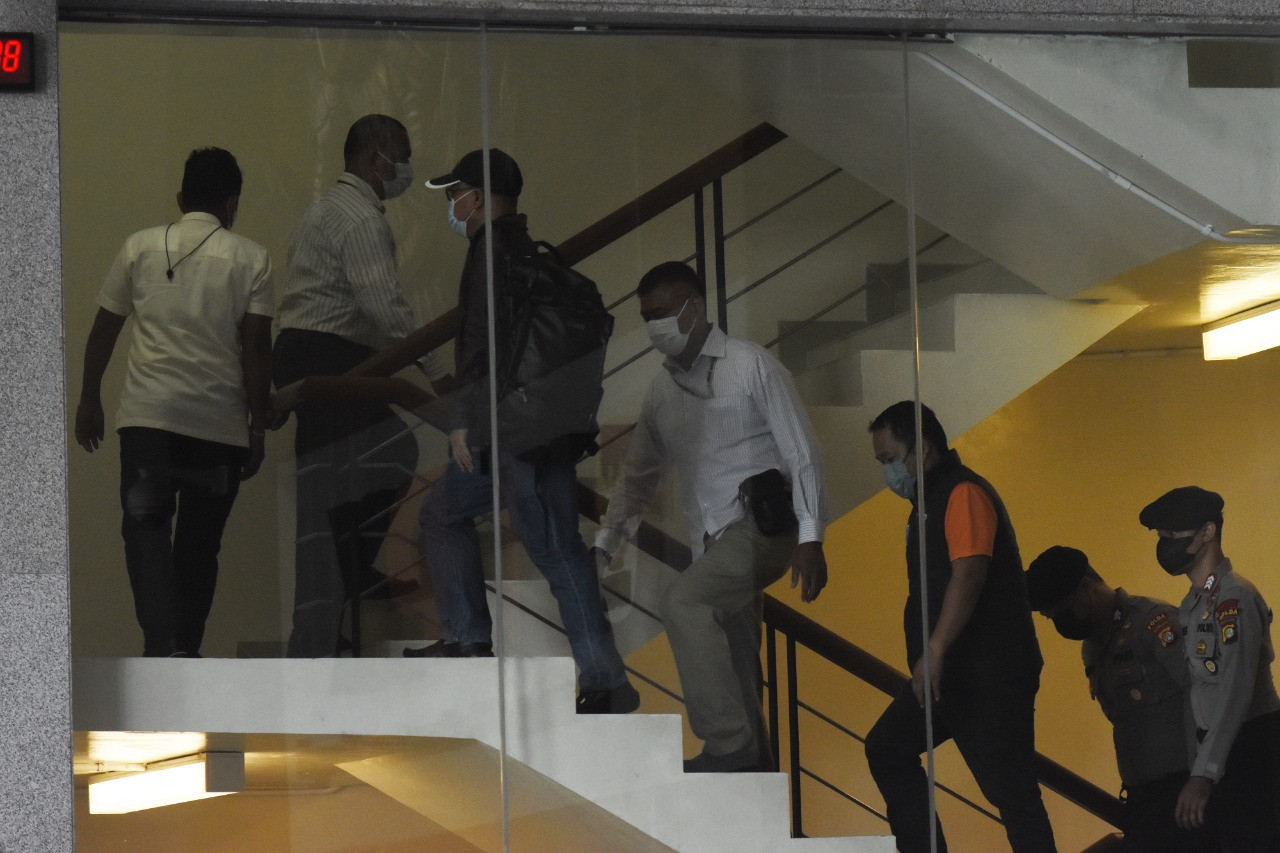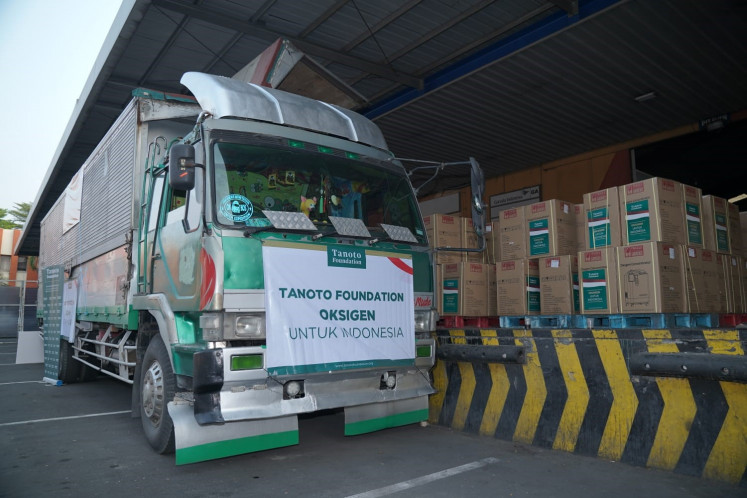Popular Reads
Top Results
Can't find what you're looking for?
View all search resultsPopular Reads
Top Results
Can't find what you're looking for?
View all search resultsCorruption perception index: Moving up or slipping down?
The government’s continuing efforts to make Indonesia more attractive to investments and be more business-friendly may not be enough to pump our corruption perception index back up.
Change text size
Gift Premium Articles
to Anyone
 Close marking: Corruption Eradication Commission (KPK) investigators and police officers escort three people arrested in connection with a bribery case in Penajem Paser Utara regency in East Kalimantan to the interrogation room at the KPK building in South Jakarta on Jan. 13. (Antara/Indrianto Eko Suwarso)
Close marking: Corruption Eradication Commission (KPK) investigators and police officers escort three people arrested in connection with a bribery case in Penajem Paser Utara regency in East Kalimantan to the interrogation room at the KPK building in South Jakarta on Jan. 13. (Antara/Indrianto Eko Suwarso)
A
t this time of year, government officials and anticorruption activists around the world await with trepidation the launch of Transparency International’s Corruption Perception Index (CPI), an indicator of how global experts and the business community perceive a country’s success in dealing with corruption.
We in Indonesia are no exception. Particularly, when up to 2019, Indonesia was on an upward trajectory, inching up the rankings and improving our score to 40 over a span of two decades, only to find ourselves slipping back to where we were in 2016 when our score was 37. Will our score and ranking be better in 2021?
Looking back over the year, it is unlikely that there will be a significant change.
The government, like many other governments, has had to deal with the socioeconomic and public health impact of COVID-19. Its concern was — and still is — how to control the spread of the virus and at the same time keep the economy afloat. It has done relatively well.
The economy continued to recover in 2021 and is expected to grow by 5.2 percent this year — if we manage the Delta variant successfully. By the end of December 2021, Indonesia had already vaccinated 59.2 percent of its population or 161.1 million people with the first dose, 42.1 percent or 113.7 million people with the second dose and 1.29 million have already received their booster shots.
Given the size of the country and the logistical challenges it presents, this is a commendable feat and testimony to the Indonesian spirit of gotong royong (mutual cooperation), of coming together in times of crisis.
The past year, however, has also been a year of controversy during which a pragmatic government has opted for maintaining stability to protect growth over strengthening governance. The passing of the controversial Job Creation Law is a clear example of this emphasis on economic growth. Its well-meaning intention was to cut through the confusing red tape governing labor and investments to create a business-friendly environment, ignoring the many protests over both the content and the format of the law, as well as the process.


















